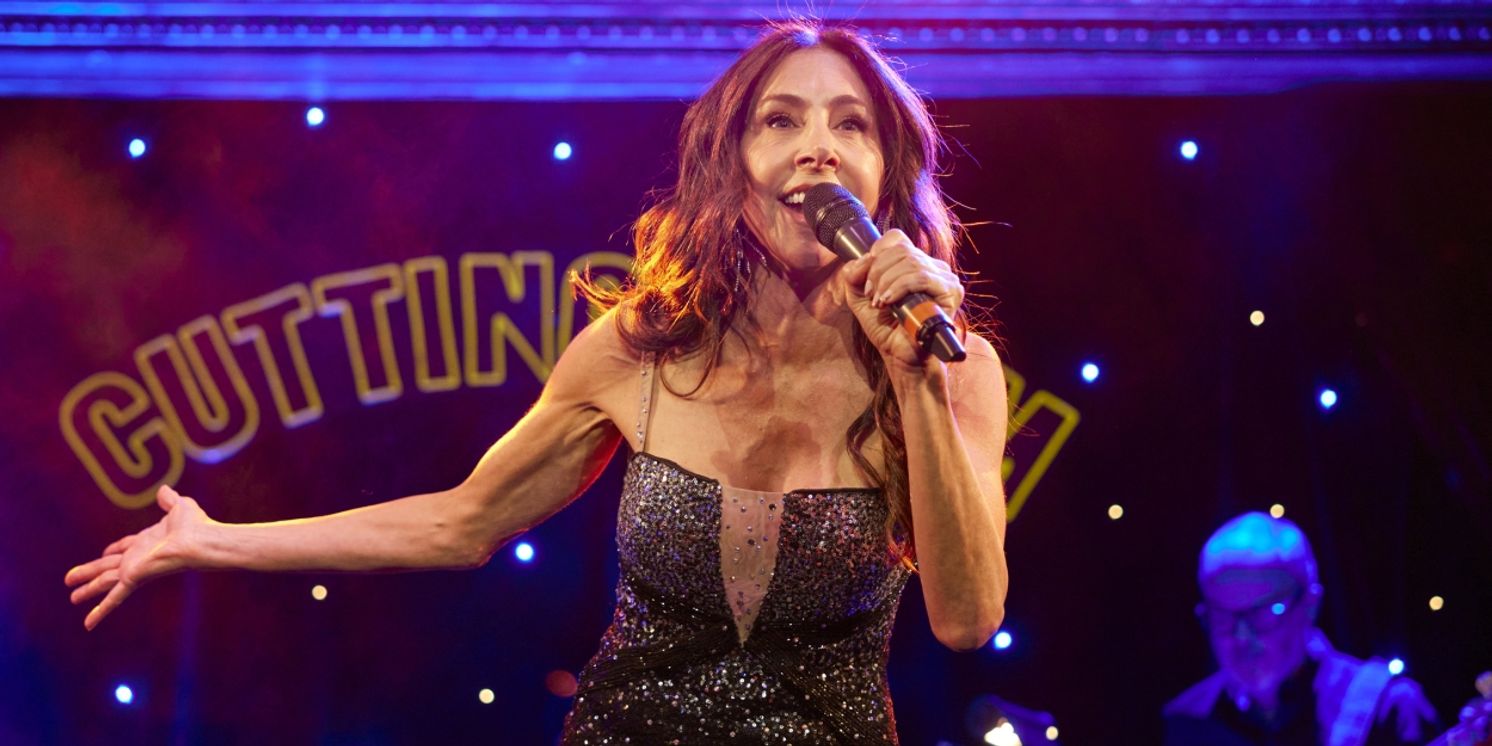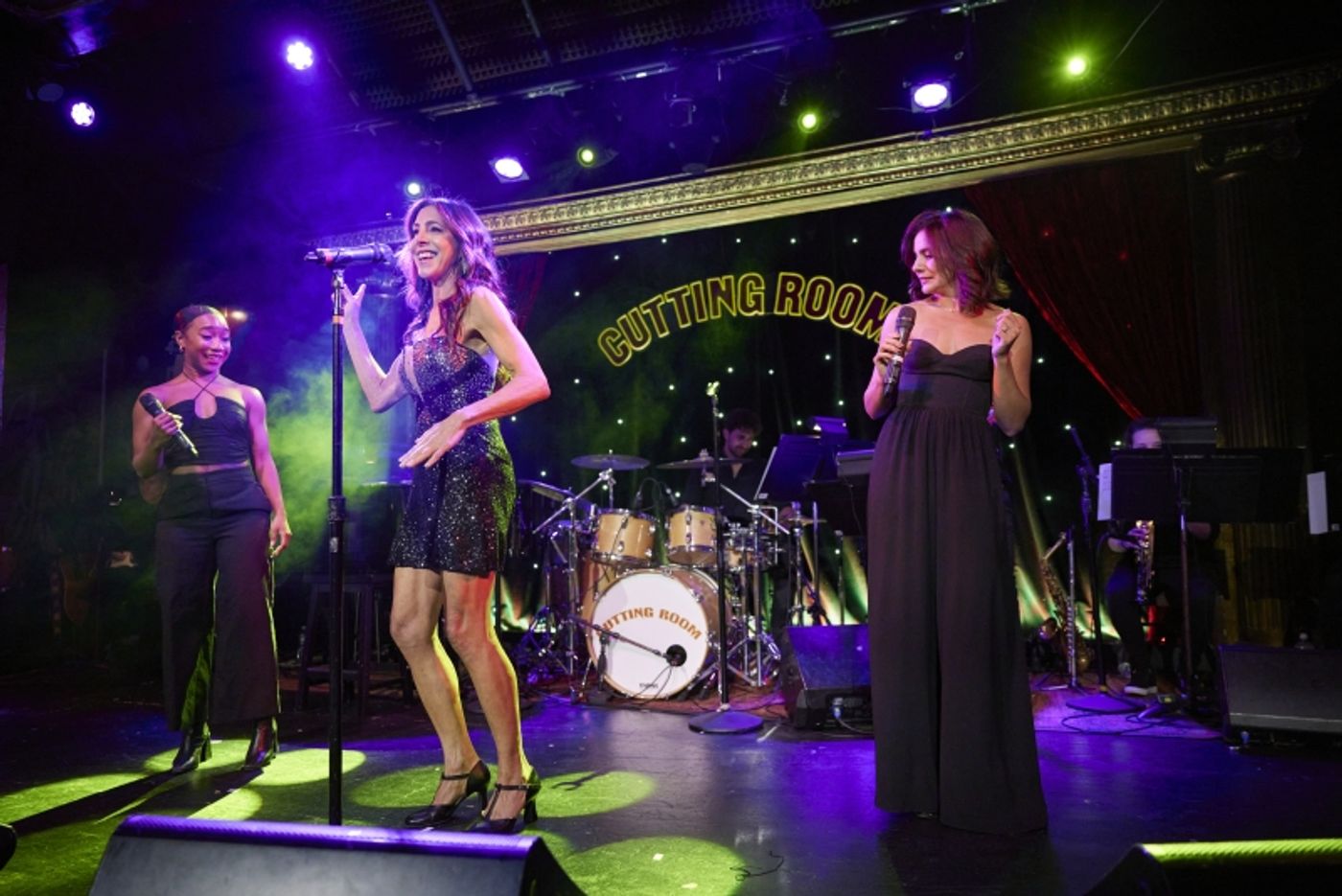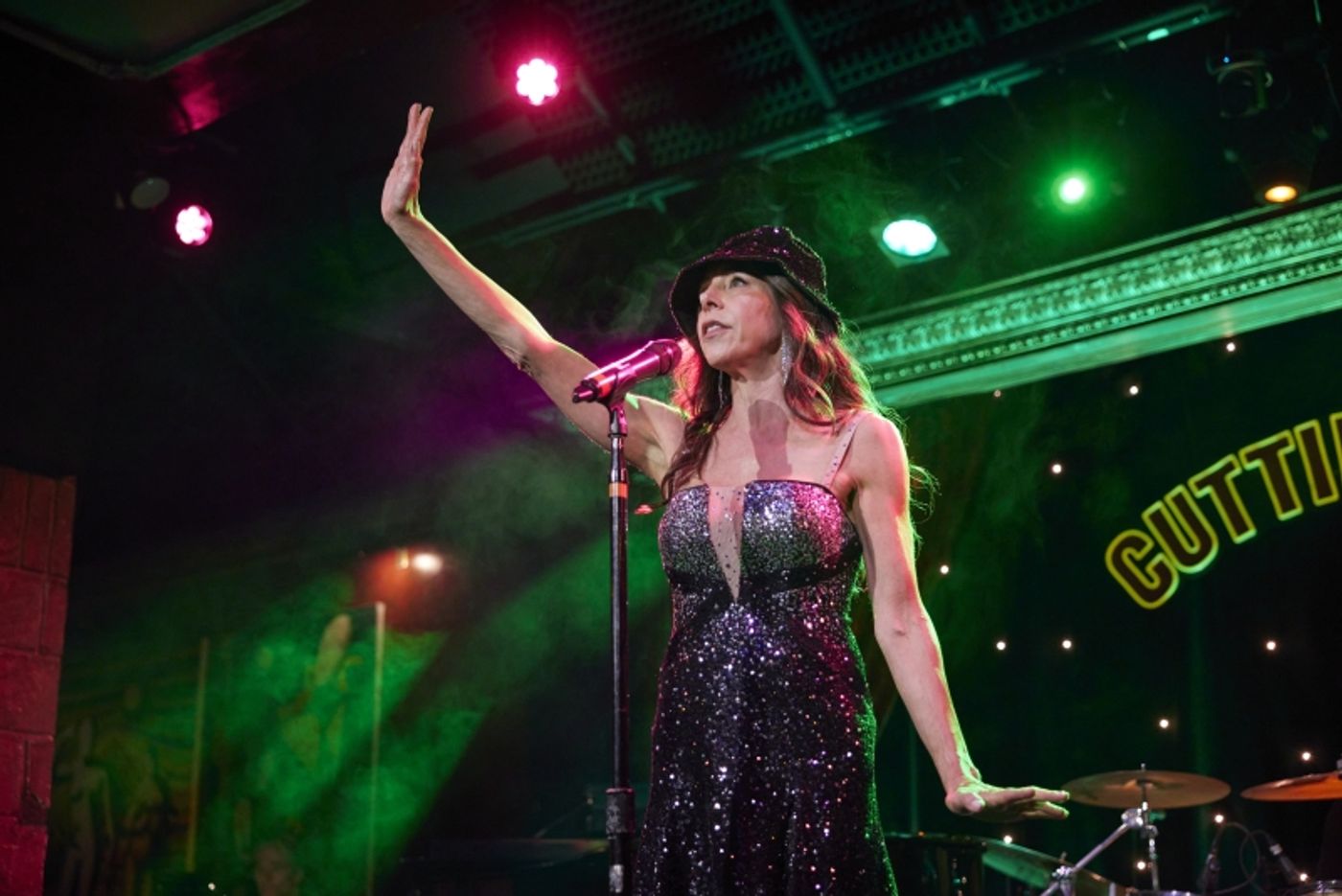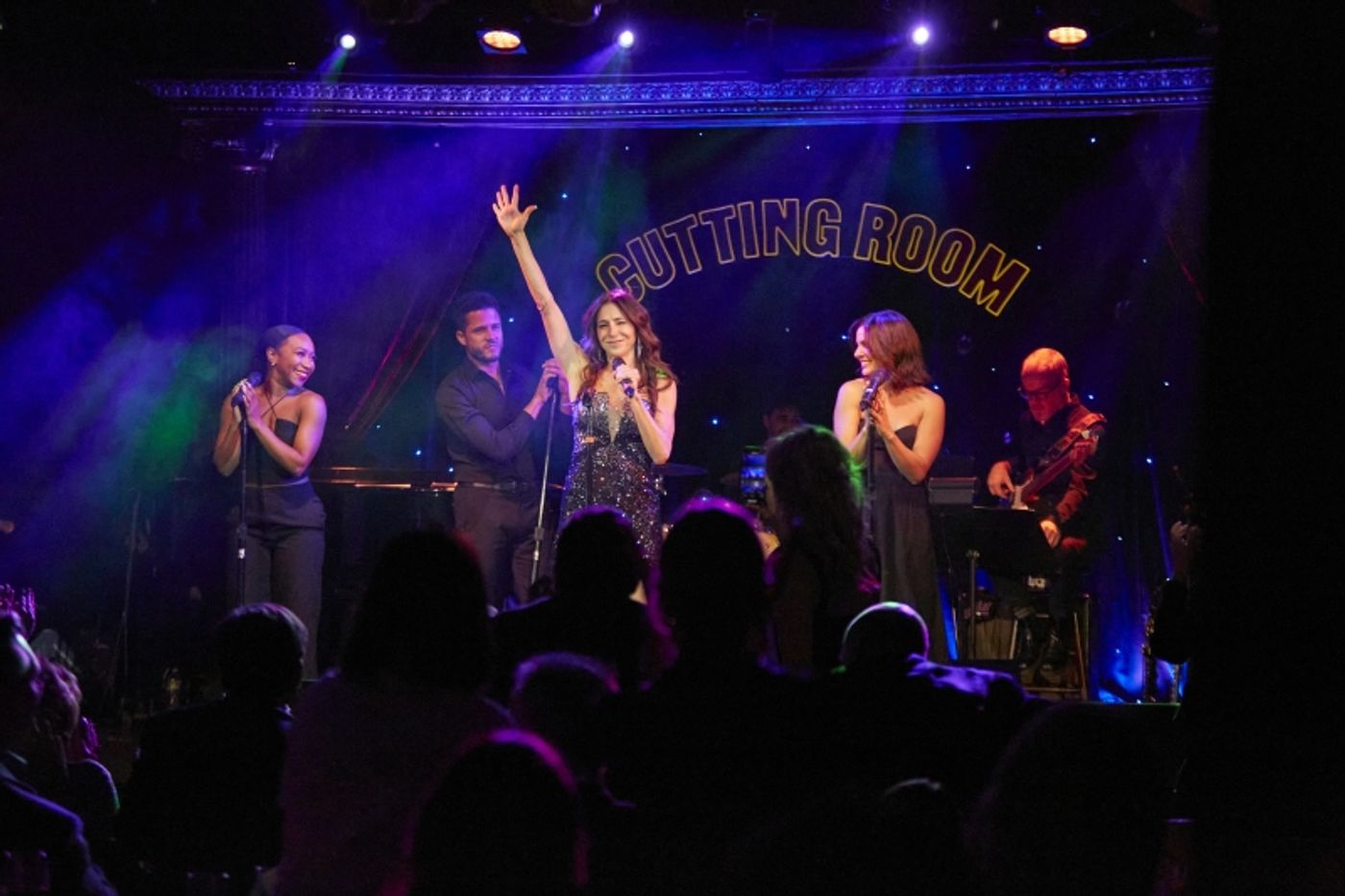Interview: Cabaret Star Stacy Polley Returns With ACT V At The Cutting Room, Benefiting Alzheimer's Research
Her newest show, ACT V, will take place on January 23 at the Cutting Room in NYC.

After turning 40, Wall Street pro Stacy Polley used the milestone birthday to reignite her passion for the performing arts.
For 25 years, Stacy's pursuit of a career on stage was placed on hold as she moved through the world of finance, rising through the ranks of Goldman Sachs, working her way to a partnership and recognition as one of the most powerful women in banking.
To celebrate her 40th birthday, Polley decided to return to her roots, creating a cabaret show called, “I’d Rather Be 40 Than Dead.” Much to Stacy’s surprise, it was a huge success, and quickly became a tradition.
In 2021, Stacy decided to use this passion project as fundraising opportunity, after her father (who inspired her love of musical theater) began suffering from Alzheimer’s. She, along with Daryl and Irwin Simon, created the 'Fork It Fund,' which, through her cabarets and other events, has raised more than $2 million for the Alzheimer’s Association for transformational research, focused on the prevention of Alzheimer’s and other dementia.
This year, Stacy returns with her biggest show yet. Her newest production, ACT V, will take place on January 23 at the Cutting Room in NYC, again to raise money for the Fork It Fund.
The show – written by Chris Dimond and directed by Stephen Edlund – will feature parodies of songs from SIX, A Chorus Line, Avenue Q and more, along with original songs.
Below, read our interview to learn more about how Stacy went from Wall Street wonder to cabaret queen!

What is your background in performing? How did you find your way back to your first passion?
My father was a school teacher for The Board of Education, as was my mother, but he was a musician. He was a very talented pianist. In the summers, he would direct plays at summer camps. That was the only way we could afford to go to sleepaway camp, because my mother did tennis and my father did the plays. So, I grew up with music in my life and I was a performer since I was little. I tried to do it when I was growing up, professionally, but I wasn't good enough. I didn't know that truly on the outside, but in the inside I did. I would go to auditions-- and besides my New York accent-- I kind of realized I couldn't stand the rejections for every job I got, and I shifted to kind of just keeping it as my hobby. I did it through high school, through college. When I got to grad school, I went to Wharton. I was director of the Wharton Follies and performed in it. I was in bands. I sang at my friend's wedding. Then probably in my mid thirties people stopped getting married. My career was taking off. I had kids and it just disappeared from my life. Every which way I tried to figure out how to keep it in my life, but it completely went silent. I think I didn't realize I was missing it because I was so busy with everything else.
But when I turned 40, instead of having a 40th birthday, I said, you know what, I'm going to do a show. That was my gift to myself and it was really my first show, which it's evolved so much since then. But I kind of told the story at the time. It was self-deprecating humor, an original song, and mostly covers with some of the words changed to kind of help tell the story. That was show number one. That was Act I.
What was it like to make that jump back onto the stage after a period of being away? Did you find it difficult?
I think I didn't realize what I was getting into. When I did it the first time, I kind of looked at it as a party. I think what surprised me the most after the first show was I realized how much I enjoyed the journey of writing it and having it back in my life as much as I enjoyed the night of the show and the performing of it. I made a promise to myself that I would do it again every couple years, because it's a lot of work.
Every few years when I was about to do it again, I realized a few things. One is I always wanted to do better at it than I did before. I had to top the prior one, and that always meant something different. I felt motivated to do the second show because I had just gotten divorced. The second show for me was more of a cathartic journey...the vulnerability I showed talking about something very personal for me in the midst of self-deprecating humor and all the other folly that's on that stage. That was like another layer of gift. But each time I decide I'm going to write a show, I always feel this anxiety of as soon as I hit the save the date. I call it, I'm "short," which is a financial term for now I have to deliver...I can't turn around. And so I say that only because every time I do that, I feel this overwhelming sense of anxiety around how am I going to top it? I want it to be organic. I don't want to write just because I have to deliver something, it has to feel right.
It's funny, I have taken every part of this more seriously. I guess as an adult, I understand more the sense of working hard at something, training all of these things I probably took for granted. I hated going to singing lessons when I was a kid. I didn't understand it. I just wanted to build. So there's this whole mature aspect of the work that goes into it. You can actually make yourself a better performer, singer, dancer by spending enough time on it. And so I've done that more over the course of the five shows.

The show has also grown in the area of fundraising for Alzheimer's research, having raised over $2 million over the course of the four shows. How does it feel to look back at the person that made the decision to return to performing and see where things have ended up?
You know, it's interesting. I'm such a Type A. My whole life, I planned my "success." I just knew I wanted to do everything I could to, "guarantee being a success." This is really the first accomplishment that happened organically without any preconceived plan. And it feels so good because it feels so natural and I feel so genuinely inspired to do it. It's not for making money...It's really just because I had the gift of sharing my vulnerabilities actually inspiring people and now the gift of being able to help people think about brain health and prevention and funding some research to help prevention is a whole oother like outlet that will also honor my father. I get to honor my father in two ways, because he inspired me musically and he would be so happy to see these performances, but also in honor his journey with Alzheimer's. We're doing something that's really in honor of him.
Act V is called The Book of Stacy. Can you tell me more about the show and what audiences can expect this time around?
People said, you should do this, you should do that. Do a podcast, write a book. And I'm thinking, what am I writing a book about? Well, how you made it to the top of a man's world and did that while raising two kids and keeping in shape. Tell us how you did it. My old CEO said I should go on CNBC and host a show...And so the, the show is really about, a little bit about my tips for success. It does start from the beginning. How did I end up on Wall Street, so I sing, "Nothing" from A Chorus Line. Then I do a number about my 24 hour rule-- don't respond to anything within 24 hours. It's sung to a song from Nunsense called, "Holier Than Thou". Every song is a performance number in this show.
What have you learned from the process of creating and performing these shows?
It's funny, I'm writing a book of about success in the five years since I left my career and I've realized success isn't what I thought it was. I thought it was about being the best in whatever you did, and I realized it's not about being the best. It's not about winning. It's not linear. I compare to success to a mosaic in life where a mosaic is a fixed size, but the tiles all represent areas of your life. You want to give time to all of the different areas-- hobbies, relationships, travel-- each tile should be sized based on how important it's to you. Until my first show performance, performing had left my mosaic. To me, having this time, these five years of decompression, taking the armor off slowly one layer at a time, allowed me to have clarity and realize, what do I want my mosaic to actually look like? You know? That's a gift to have the clarity to do that. A lot of people can't get off the treadmill, can't even look inside themselves to have clarity, but success is actually living your life as close to that as you possibly can. And that's what this show is about.


Videos

